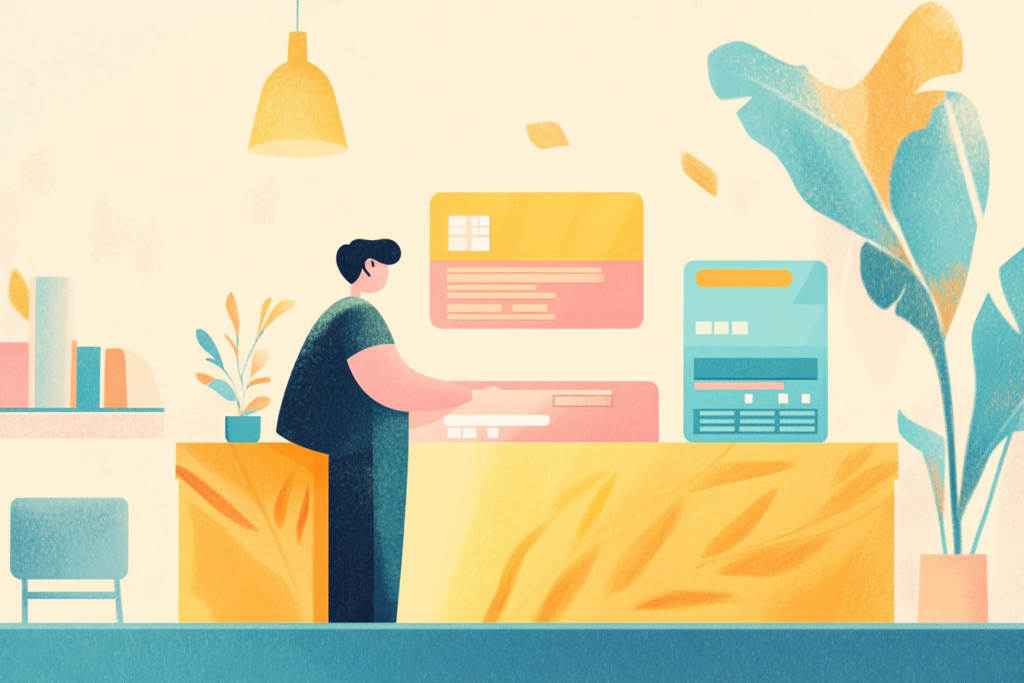As you go through life, you realize just how important your credit is. If your credit is healthy, it can open doors and opportunities for you. But, when your credit is poor, you often find yourself struggling to get ahead. The good news is that credit isn’t permanent. No matter how poor your credit is, you can take steps today to improve it. Keep reading to learn what you need to do to build your credit up quickly.
Why Your Credit Matters
First, let’s cover some of the basics.
Your credit matters for many reasons:
- Approvals: When you apply for a new loan or credit, the lender will check your creditworthiness to determine if you’re a reliable borrower. Those with a high credit score get quick approvals, better terms, and low interest rates. And those with poor credit often have their applications denied or only approved at incredibly high interest rates. Being able to secure a loan approval is critical because you never know when an emergency that requires you to access quick, large sums of cash can happen.
- Predatory lenders: If your credit score is so low that you get denied by traditional lenders (ie. banks and credit unions), you may have no choice but to turn to alternative lenders. Many alternative lending solutions, like payday loans, are predatory and can charge interest rates as high as 400%.
- Low interest rates: Low credit scores mean you likely will only get credit with a very high interest rate. A higher interest rate could cost you hundreds or thousands of additional dollars if your loan is substantial.
- Employment screenings: Some jobs require a credit check in the job application process. A low credit score can cost you an opportunity for your next position.
- Tenant screenings: Some landlords run a credit check on potential applicants and deny those with low scores.
10 Steps to Build Your Credit From Scratch

Here are 10 responsible financial habits you should start to help build your credit:
1. Make Payments On Time
One of the most impactful things you can do for your credit is to make sure you make all your payments on time. Every time you miss or make a late payment, there’s a possibility it’ll be added to your credit report as a negative line item. Each time this happens, your credit score will drop.
These negative line items can also stay on your credit report for up to six or seven years!
Conversely, consistently making on-time payments shows a pattern of responsible borrowing, which boosts your score.
Consider automating as many payments as possible to reduce the chances of a missed payment.
2. Keep Your Credit Utilization Below 30%
One of the biggest factors that impacts your credit score is your credit utilization ratio.
Credit utilization ratio takes the amount of credit you use every month compared to the credit available to you. Experts recommend keeping your credit utilization ratio under 30% to avoid it negatively impacting your credit score.
So, if you have three credit cards, each with a limit of $500, you have $1,500 available monthly. Ideally, you wouldn’t spend more than $500 across all combined cards.
If you’re having trouble keeping your credit utilization below 30%, you could consider increasing your credit limits.
3. Have a Healthy Credit Mix
Another factor impacting your credit score is your credit mix. A “healthy” credit mix means you have both installment loans and revolving credit.
Installment loans are loans with the same recurring payment on a regular schedule, such as mortgages, car loans, or student loans.
Revolving credit is when you have credit available but only have to pay what you use. Examples of revolving credit are credit cards and credit lines.
Lenders like to see that you can handle both types of credit and still be responsible with your payments.
4. Consider Secured Loans and Credit Cards
One of the challenges of building credit is that you have trouble accessing credit in the first place. And you can’t build up your credit history if you can’t get credit!
If you’re applying for loans and credit cards and getting denied, consider opting for secured credit.
Lenders feel more comfortable approving secured credit for individuals with low scores because it has collateral. A secured loan is backed by an asset that’ll be seized if loan payments stop. And a secured credit card acts like a debit card. You load money onto the card and can only spend what you’ve loaded, so the lender doesn’t take on risk.
These may not be typical loans and credit cards, but your payment history still gets added to your credit report. So, with enough time, you’ll add enough positive data to start qualifying for unsecured credit.
5. Get a Credit Builder Loan
Another option to help build your credit from scratch is to get a credit builder loan. As the name implies, the entire point of this loan is to help you build credit.
Unlike a regular loan, a credit builder loan doesn’t offer upfront money. You’ll receive all your money at the end of the loan. However, you’re forced to make regular payments, which benefits your credit.
6. Become an Authorized User
You can also improve your credit by becoming an authorized user on someone else’s credit card. When you become an authorized user, the payment history for the card is also added to your credit report. This happens regardless of whether you’re the one using the card or not.
One caution with authorized users is that you only want to tie yourself to someone you know has good financial habits. While their good actions can help your credit, the same applies to bad ones. If they start missing or making late payments, it’ll start negatively impacting your score, too!
7. Pay Down Your Debts
This is a simple tip. The total amount you owe is part of your credit score. Therefore, paying down your debts can raise your credit score.
8. Monitor Your Credit Report & Dispute Errors
Credit reports are supposed to be a fair and accurate representation of your transactions with lenders. However, many Americans don’t realize there are errors in their credit reports. In fact, one study found that almost 50% of Americans have a mistake on their credit report, with 25% being a serious error.
Unfortunately, no one will review your credit report for you; that’s entirely on you. Make it a regular habit to check your credit report and file disputes for any mistakes so your credit score can be accurate.
9. Avoid Opening Too Many New Accounts
Whenever you open a new loan or get new credit, the lender does a hard inquiry check into your credit. A single hard inquiry will cause a slight and temporary dip in your score. But, having multiple hard inquiries in a short time can add up to a significant credit score drop.
A good rule to follow is to open a new account only every six months or less.
10. Keep Old Accounts Open
Lastly, another factor in your credit score is your credit history. This is the average length of all your credit products. The longer your credit history, the better your credit score.
If you ever close your oldest account, it can dramatically reduce your credit score. You can avoid this by keeping that account open, even if you don’t use it. Just make sure to make at least one transaction a year so your lender doesn’t automatically cancel the card.
A Better Credit Score is Possible
By implementing these tips, you should certainly see an improvement in your credit score. Know that it can take time to build your credit. But, by enhancing your financial knowledge and making responsible decisions, your credit score will only continue to rise over time.
You might also be interested in: 6 Ways to Fix Your Credit After a Bankruptcy







